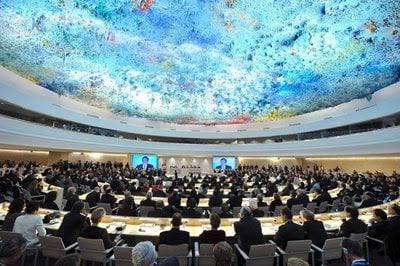
‘Indigenous women and girls’: MRG’s reaction to the annual report of the UN Special Rapporteur on Indigenous Peoples
UN Human Rights Council, 30th session
Interactive Dialogue with Ms. Ms. Victoria Tauli Corpuz, UN Special Rapporteur on the rights of indigenous peoples
September 2015
Mister President, Madame Special Rapporteur,
Minority Rights Group (MRG) warmly welcomes your report, which captures the complex and systemic nature of the multiple, aggravated and intersecting forms of discrimination and violence suffered by indigenous women and girls. MRG recently dedicated its annual report to this issue, and we would like to share a few reflections with you.
Indigenous women and girls have often to fight on two fronts. On the one hand, they may face gender-based discrimination and violence in common with women from majority communities. On the other hand, they may face discrimination because of their indigenous identity, shared with indigenous men. Other forms of disadvantage such as on the basis of age, disability, sexual orientation or socioeconomic status may further intersect to create overlapping and entrenched marginalization. Widespread trends such as land-grabbing, natural resource extraction, militarization of indigenous lands, migration and urbanization have all made the position of indigenous women and girls more precarious.
The position indigenous women find themselves in is complicated, all the more so as the violence and discrimination they face can come both from the majority society and from within their own communities and sometimes families – as for many women and girls.
A good illustration is the consequences for indigenous women of the fact that they are often perceived as “custodians of cultural traditions”, with a primary responsibility for raising children and transmitting their cultures. This role makes them targets of violence and discrimination in two respects: on the one hand, they are sometimes victimized, including through sexual and gender-based violence, precisely because they are perceived by the majority as the custodians of their indigenous identities. Control over their bodies, violence and humiliation can be ways to target – through them – the entire community in its identity. On the other hand, and also because they are seen as custodians of their cultures, when indigenous women question or are considered to have violated an obligation to follow certain cultural practices, they can face difficulties or reprisals from their own communities, or even from within their own families.
But indigenous women are not only passive victims of violations of their human rights. Many are actively fighting for their rights as women, for the rights of their communities and for their rights as indigenous women. It is important to stress that indigenous women are not just the victims of violence, they are also its leading opponents.
Madame Special Rapporteur,
The challenges indigenous women and girls face are complex, and for this very reason, the responses to these challenges should be sophisticated, and be gender and culture-sensitive. State efforts to eliminate harmful practices are more likely to be effective if they work with those in the community already engaged in its eradication, or sympathetic to their aims, to design a culturally relevant approach which includes addressing the reasons for the opposition within the community. It is important that such support allows indigenous women activists to take the lead, and does not put them in a position where they may face further hostility for their brave work.
I thank you.